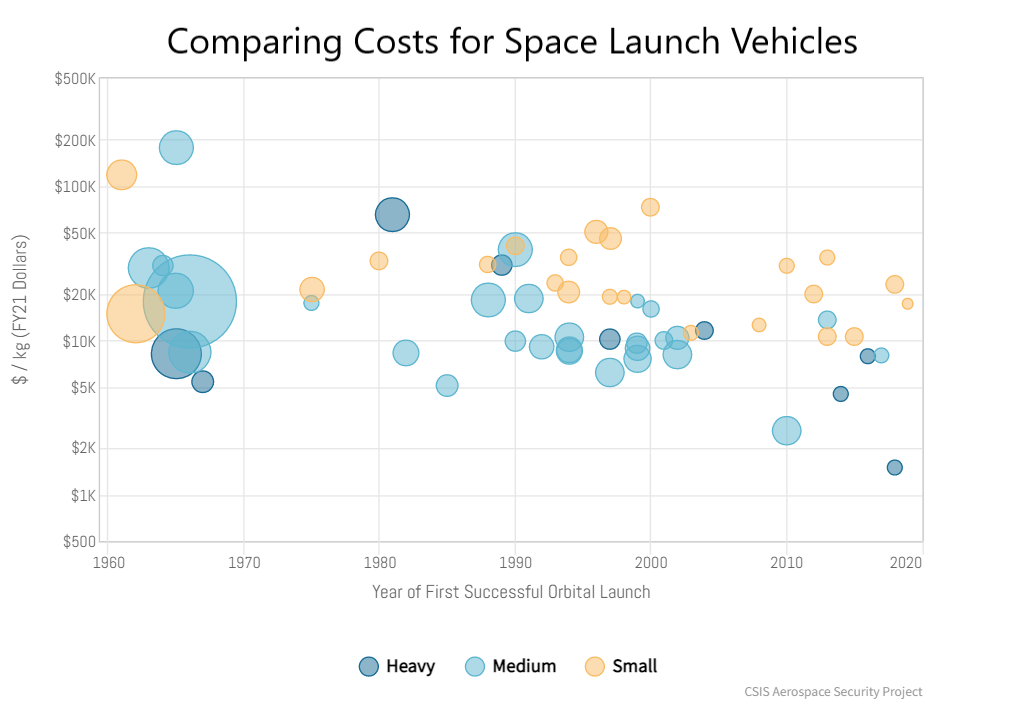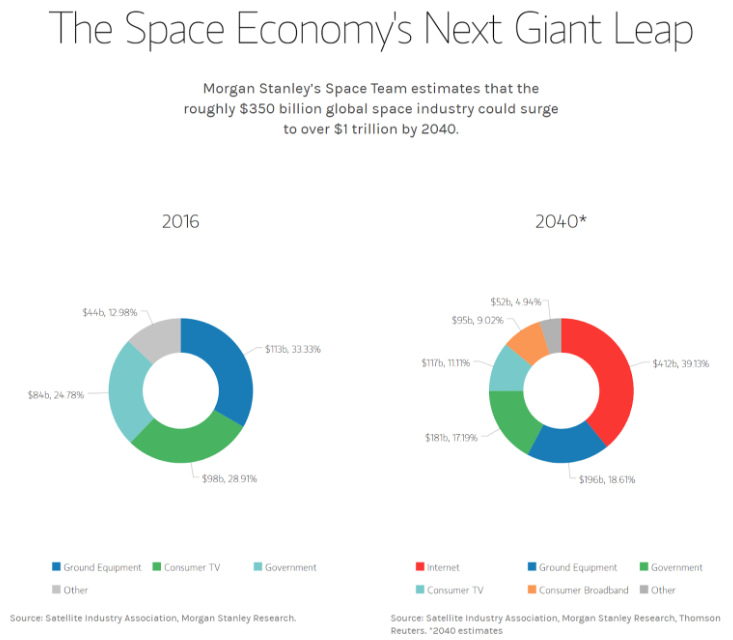Editor’s note: “The Countdown to Wealth Has Begun” was previously published in January 2023. It has since been updated to include the most relevant information available.
In less than two months, the world may change forever. And it will all be thanks to a single event that could mark the beginning of a brand-new era for humanity.
I’m talking about the first-ever commercial space flight.
Last week, space tourism leader Virgin Galactic (SPCE) confirmed that it intends to launch its first-ever commercial space tourism flight – dubbed Galactic 01 – at the end of June.
That’s less than two months away. If the flight is successful, it would mark the first-ever commercial space tourism flight in human history.
You may be saying: So what? Who cares if a bunch of multi-millionaires blast off into space for a 15-minute joyride?
But this isn’t about super-rich people getting to see Earth from outer space.
Instead, I’m talking about the creation of a brand-new, multi-trillion-dollar Space Economy.
Blasting Into the Space Economy
Soon, we’ll make things, generate power, mine materials, and produce data in space. And in sum, we’ll create a ton of real-world value leveraging space’s unique characteristics. (Think zero gravity, unlimited sunlight, infinite room, ample resources, etc.).
Now, to their credit, the creation of that Space Economy does start with those billionaires’ trips into space.
See; to Richard Branson and Jeff Bezos, those flights were bragging rights. But to the thousands of rocket scientists and engineers across the world, those flights were proof that jet propulsion technology has progressed to the point where we can safely, reliably, and cost-effectively fly non-trained professionals into space whenever we want.

In the 1960s, we were flying one highly-trained astronaut on one expensive rocket ship into space once every few months. Now we’re flying untrained businessmen to space on leisurely joyrides, with plans for daily flights.
That’s a big deal.
You can’t colonize and commercialize space – and create an entirely new economy – without safe, reliable transportation.
Well, folks, we’re finally at that point. For the first time in history, space is becoming accessible.
In two months, Virgin Galactic will kickstart a new era of humanity. And we can finally begin colonizing and commercializing space – an effort we believe will yield multiple trillion-dollar economic opportunities.
The Trillion-Dollar Opportunity in Space Stocks
It may be obvious at first, but space actually presents multiple untapped economic opportunities that are quite large.
The first economic opportunity – and the one that everyone immediately thinks of, thanks to Virgin Galactic – is space tourism.
We do believe there will exist an enormous market for space “shuttle” companies to fly people into outer space on Disneyland-like joy rides. At first, such rides will be prohibitively expensive. But as rocket launches follow the cost-decline curve shown above and space tourism companies unlock economies of scale, these space rides will become increasingly cheaper.
By the 2030s, we believe about a half-dozen companies will be operating thousands of shuttles. Each will be flying a handful of folks into space on quasi-affordable 10- to 15-minute trips several times a week. Net-net, we think millions of people will be flying into space every single year by the 2030s.
And soon enough, they won’t just be flying into space. They’ll be staying in space hotels, renting space apartments, and more. While these ancillary tourism markets are still several years away, we do believe that within the coming years, some folks will have the ability to stay in a Hilton hotel in space.
We view this broader category of space tourism as a multi-hundred-billion-dollar industry in the making. And it all starts in just a few months.
Emerging Space-Based Industries
While exciting, tourism is likely to be one of the smaller industries in the Space Economy. The other space industries we see emerging in the 2020s include:
- Geospatial imagery. Already today, hundreds of satellites are in orbit around the Earth, capturing dynamic and high-resolution pictures of the Earth’s surface. These images can be used for any variety of end-use applications, including for national defense, asset tracking, crop monitoring, etc.
- Weather forecasting. Some satellites will have the ability to collect GPS radio occultation data. This is radio signal data that leverages space-based atmospheric density readings to improve weather forecasting.
- Asteroid mining. Asteroids contain many nonrenewable resources, including water and rare minerals. These could prove very useful to mine and transport back to Earth.
- Manufacturing. The lack of gravity makes it much easier to manufacture certain objects, like satellites, in space than on Earth. Therefore, we believe in-orbit satellite manufacturing represents a huge economic opportunity in the coming years.
- Renewable energy generation. Space is a lot closer to the sun than Earth. It also never has clouds. Therefore, there’s huge potential to generate enormous amounts of renewable solar energy there and transport it back to Earth. We believe outer-space solar energy generation could solve the world’s climate crisis.
- Connectivity. Companies like SpaceX are hard at work finessing and launching satellite tech to provide internet connectivity all across the globe – even above it. Indeed, SpaceX recently launched a service to provide 350 Mbps internet on planes using its Starlink satellites.
Like space itself, the economic opportunity there is infinite. In numbers, analysts at Morgan Stanley (MS) – who, for what it’s worth, were early bulls to the EV Revolution – expect the Space Economy to measure over $1 trillion by 2040.

It’s no wonder the CEO of rocket startup Astra (ASTR) said that “the next generation of billionaires will be made in space.”
We agree entirely with that statement.
The Final Word on Space Stocks
That’s mostly why we’re excited about Virgin Galactic stock here and now.
This stock has been beaten and bruised over the past two years. Its current enterprise value is just $720 million. Yet, the company is about to do something no other company in history has done – fly regular folks into outer space. And that could be the start of creating a highly defensible, highlyprofitable space tourism business that generates billions of dollars in annual revenue.
This is a potential $10 or $20 billion company in the making. And it is valued at less than $1 billion today.
We really like the fundamental setup for SPCE stock here. It is dramatically undervalued ahead of a game-changing catalyst.
Time to buy the dip in SPCE stock? We think so.
But Virgin Galactic is far from our favorite space stock to buy at the moment.
Instead, our models are flashing stronger buy signals on a variety of other breakout stocks. And we see them surging into the summer.
Learn more about some of those “Strong Buy” stocks before they blast off.
On the date of publication, Luke Lango did not have (either directly or indirectly) any positions in the securities mentioned in this article.
